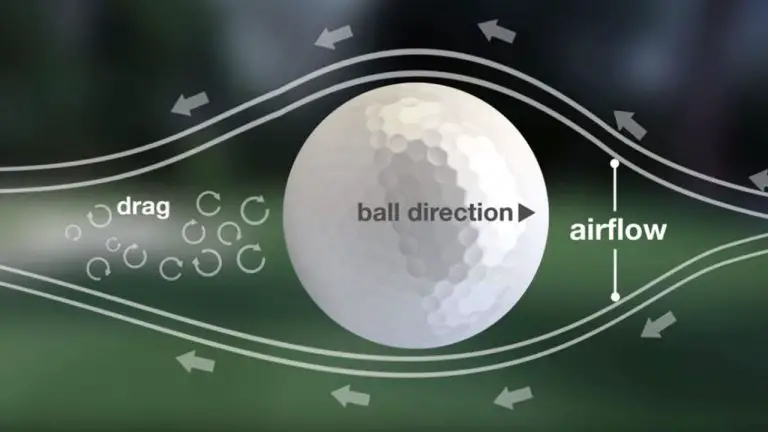Why Do I Suck At Golf
Golf, often regarded as a game of precision and skill, has a way of humbling even the most enthusiastic players. If you find yourself consistently struggling and asking, “Why do I suck at golf?”, you’re not alone. Many golfers, regardless of their experience level, have faced the frustrations and self-doubt that come with underperforming on the course. But fear not, for understanding the reasons behind your struggles is the first step towards improvement.
In this comprehensive guide, we will delve into the factors that may contribute to your difficulties in golf. From skill development and practice habits to swing mechanics, mental game, physical fitness, and equipment selection, we will explore each aspect to shed light on why you may not be achieving the desired results. By uncovering the underlying issues, you can take proactive measures to address them and enhance your overall performance.
Whether you’re a beginner seeking to establish a solid foundation or an experienced player aiming to break through a performance plateau, this guide will provide you with valuable insights, practical tips, and actionable strategies to help you overcome the obstacles and level up your golf game.
So, let’s embark on this journey together, uncovering the reasons behind your struggles, and unlocking the keys to becoming the golfer you aspire to be. Remember, improvement takes time and effort, but with the right mindset and approach, you can transform your golfing experience and enjoy the game to its fullest.

Macro-Semantic Context: Skill Development and Practice Habits
Are my skill development and practice habits contributing to my poor performance?
Improving your golf game requires deliberate skill development and effective practice habits. Let’s dive into this critical aspect of your performance and explore ways to optimize your practice routine for better results.
Evaluating the importance of proper skill development and structured practice
Skill development lays the foundation for success in golf. We’ll discuss the importance of focusing on the fundamentals, such as grip, stance, and alignment, and how neglecting these basics can hinder your progress. Additionally, we’ll explore the significance of structured practice sessions and setting specific goals to enhance your skill development.
Exploring common practice pitfalls and ineffective training methods
Not all practice is created equal. We’ll examine common pitfalls that golfers fall into during practice and offer insights on how to avoid them. From mindless repetition to lack of focus, we’ll shed light on the ineffective training methods that may be holding you back from reaching your full potential.
Highlighting the significance of deliberate practice and skill-building exercises
Deliberate practice involves purposeful and focused training to target specific weaknesses in your game. We’ll provide actionable tips and exercises to help you engage in deliberate practice and develop the skills necessary for improvement. By incorporating skill-building exercises into your practice routine, you can overcome the barriers that have been limiting your progress.
Micro-Semantic Context: Swing Mechanics and Technique
Is my swing mechanics and technique holding me back?
A solid swing is the foundation of a successful golf game. Let’s examine the role of swing mechanics and technique in your performance and identify areas for improvement.
Analyzing swing flaws that may be impacting your performance
Every golfer has unique swing characteristics, but certain flaws can hinder your consistency and accuracy. We’ll analyze common swing flaws such as an over-the-top move, improper weight transfer, and lack of rotation. By understanding these swing issues, you can take steps to address them and improve your ball-striking abilities.
Exploring common swing-related issues and their effects on shot consistency
Inconsistency in shot shape, trajectory, and distance can be attributed to swing-related issues. We’ll explore common problems like a slice, hook, topped shots, or fat shots and discuss their causes and effects on your overall performance. Understanding the connection between swing mechanics and shot consistency is essential for making the necessary adjustments.
Highlighting the importance of seeking professional guidance for swing improvement
While self-analysis and practice are valuable, seeking professional guidance can significantly accelerate your progress. We’ll emphasize the importance of working with a qualified golf instructor who can assess your swing, identify specific areas for improvement, and provide personalized guidance and drills to help you refine your technique.
Micro-Semantic Context: Mental Game and Course Management
How does my mental game and course management affect my performance?
Golf is as much a mental game as it is a physical one. Let’s explore the influence of your mental state and course management on your overall performance and provide strategies to enhance your mental game and course management skills.
Discussing the impact of mindset, focus, and self-belief on golf performance
A strong mental game is crucial for success in golf. We’ll delve into the significance of having the right mindset, maintaining focus throughout your round, and developing self-belief. By understanding the power of your thoughts and emotions on the golf course, you can overcome obstacles and perform at your best.
Exploring strategies for managing on-course pressure and staying mentally strong
Pressure situations can often lead to poor decision-making and subpar performance. We’ll share practical tips and techniques to help you manage on-course pressure effectively. From pre-shot routines to visualization exercises, you’ll learn how to stay composed and make confident decisions even in challenging circumstances.
Highlighting the importance of effective course management and shot selection
Course management involves understanding the layout of the course, making strategic decisions, and selecting the right shots to minimize risks and maximize scoring opportunities. We’ll discuss the key principles of effective course management, including club selection, shot placement, and risk-reward analysis. By developing a solid course management strategy, you can optimize your performance and avoid unnecessary mistakes.
Micro-Semantic Context: Physical Fitness and Conditioning
Does my physical fitness and conditioning contribute to my poor performance?
Physical fitness plays a vital role in golf performance. Let’s explore how your physical condition impacts your game and how you can improve your fitness level to enhance your golf performance.
Discussing the importance of physical fitness for golf and its impact on performance
Golf requires a combination of strength, flexibility, endurance, and balance. We’ll highlight the specific physical demands of the game and explain how being physically fit can improve your swing mechanics, power, and overall performance on the course.
Exploring common physical limitations that can affect swing mechanics and power
Certain physical limitations, such as lack of flexibility, poor core stability, or muscular imbalances, can hinder your ability to execute a proper golf swing. We’ll identify common physical limitations that golfers face and provide exercises and stretches to address these limitations and improve your swing mechanics and power.
Highlighting exercises and training methods to improve golf-specific fitness
To enhance your physical fitness for golf, we’ll share a variety of exercises and training methods designed to target the specific muscles and movements involved in the golf swing. From strength training exercises to mobility drills, you’ll have a comprehensive toolkit to improve your golf-specific fitness and performance.
Micro-Semantic Context: Equipment Selection and Club Fitting
Is my equipment selection and club fitting hindering my performance?
The right equipment can make a significant difference in your golf game. Let’s explore the impact of equipment selection and club fitting on your performance and discuss ways to optimize your equipment for better results.
Discussing the role of properly fitted equipment in optimizing performance
Using equipment that is properly fitted to your body type, swing characteristics, and playing style is crucial for maximizing your performance. We’ll delve into the importance of club length, shaft flex, grip size, and clubhead design and explain how they can influence your swing mechanics and shot outcomes.
Exploring the impact of club design, shaft characteristics, and club customization
Different club designs and shaft characteristics can affect ball flight, distance, and accuracy. We’ll discuss the attributes of different club designs, such as cavity-back irons, blade irons, and different types of wedges, and explain how they can influence your game. Additionally, we’ll touch upon club customization options, such as adjusting loft and lie angles, to fine-tune your equipment for optimal performance.
Highlighting the importance of seeking professional club fitting for improved play
Professional club fitting involves a comprehensive analysis of your swing and equipment specifications to determine the best-suited equipment for your game. We’ll emphasize the benefits of working with a qualified club fitter who can assess your swing, analyze your ball flight, and recommend the appropriate specifications for your clubs. By investing in professional club fitting, you can ensure that your equipment complements your swing and maximizes your performance potential.
Conclusion
In conclusion, if you find yourself struggling and wondering, “Why do I suck at golf?”, it’s essential to take a comprehensive approach to identify the factors that may be hindering your performance. By addressing skill development, practice habits, swing mechanics, mental game, physical fitness, and equipment selection, you can make significant improvements in your golf game.
Remember, improvement in golf takes time and effort. Be patient with yourself and embrace the learning process. Use the insights, tips, and strategies shared in this guide to tailor your practice sessions, refine your technique, develop a strong mental game, prioritize physical fitness, and optimize your equipment.
Seeking guidance from golf professionals, coaches, and club fitters can also provide valuable support in your journey to improve. Embrace the challenges, stay motivated, and enjoy the process of unlocking your full potential on the golf course.
So, the next time you find yourself struggling on the course, remember that with the right approach, dedication, and perseverance, you have the ability to overcome your challenges and elevate your golf game to new heights. Keep practicing, stay focused, and enjoy the wonderful game of golf.





